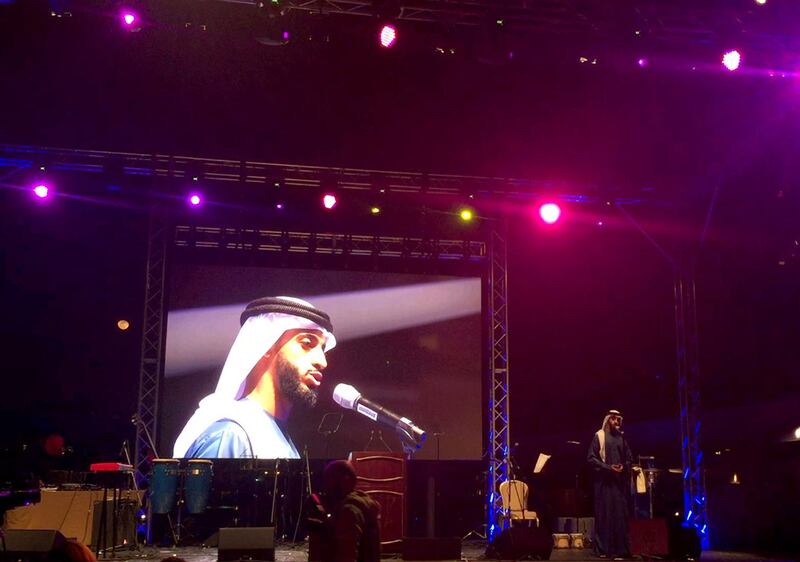Since taking part in his first poetry slam in 2012, Salem Shukri Al Attas has become a well-known face in the local poetry scene.
And although his first public performance at a poetry slam ended in defeat, the Emirati was hooked.
"I performed and I slammed and I was dead last, but I got caught with the bug and I've been performing ever since," says the Abu Dhabi resident, one of several artists taking part in next week's Hekayah the Story, an evening at New York University Abu Dhabi (NYUAD) focusing on the art of the spoken word and traditional Nabati poetry from the GCC region.
And while the style of performance may change throughout the evening, each artist has a theme to play with – the UAE’s 44th National Day.
However, when it comes to spoken word poetry, says Al Attas, a central theme does not place boundaries on one’s work.
“I love spoken word poetry as an art form because, compared to other art forms, it seems limitless in what you can do with it.”
But one should also be wary of the unknown, he says. “Poets should only speak about what they know, and if there’s one thing I know, I know what it means to be an Emirati,” says Al Attas. “We’re at a time where most of our generation have a huge identity crisis, and one of the things that the Emirates takes very seriously is for Emiratis to know who they are.”
On Monday, when Al Attas takes to the stage, he will bring with him a body of work that touches on being Emirati, and coping in a society that has modernised so swiftly.
Although a very personal art form, it is one that can have an equally strong affect on the audience, says 21-year-old Farah Chamma, who will perform a specially-written piece for the event.
“It’s very linked to connecting to other people,” says the Dubai-born Palestinian, who started performing spoken word poetry as a teenager.
“Looking at people in the eye and talking to them.”
As well as the interactive aspect of the performance, music has a large affect on her work, says Chamma. During the creative process, she says, the words can change depending on the music accompanying them.
“It changes very much. The music will become part of the text.”
It goes without saying, she says, that this type of poetry is not poetry in the “classical sense”, but an art form delivered by a storyteller.
“It’s someone that’s out there, telling you something, talking to you. “It’s not about reading a text. It’s very heartfelt,” says Chamma, who writes and performs her poetry in a number of languages.
There are many things to take in when listening to spoken word, regardless of the language, says Bill Bragin, executive artistic director of The Arts Centre st NYUAD and one of the event’s organisers. He says: “You can appreciate the tone of voice; you can appreciate the cadences; you can appreciate the charisma and the gestures, and the musicality.”
It creates “a poetic picture of Abu Dhabi with an emphasis on Emirati artists, but also looking at the variety of communities that all make Abu Dhabi their home,” he says. And as aural as the event will be, the visuals have not been forgotten, with the addition of a classical Arabic calligrapher who will draw throughout the evening, taking influence from the words being spoken and the performances being given.
But strip down the body movements, strip down the delivery, and it is the simplicity of the spoken word that is the artform’s most appealing characteristic, says Al Attas, who has been performing for about four years. However, not every story should be read aloud, he says.
A lot of people, “they write for something to be read and they perform it, and it’s not as engaging as they’d like it to be.There are certain poems that are meant to be read and there are certain poems that are meant to be performed,” he says.
“Everyone is coming with a story that they have, and every story is important.”
• Hekayah the Story takes place at The Arts Centre at NYUAD on Monday at 7pm. This event is free but people are required to make reservations on the website.
Zaineb Al Hassani is a senior news editor at The National.





